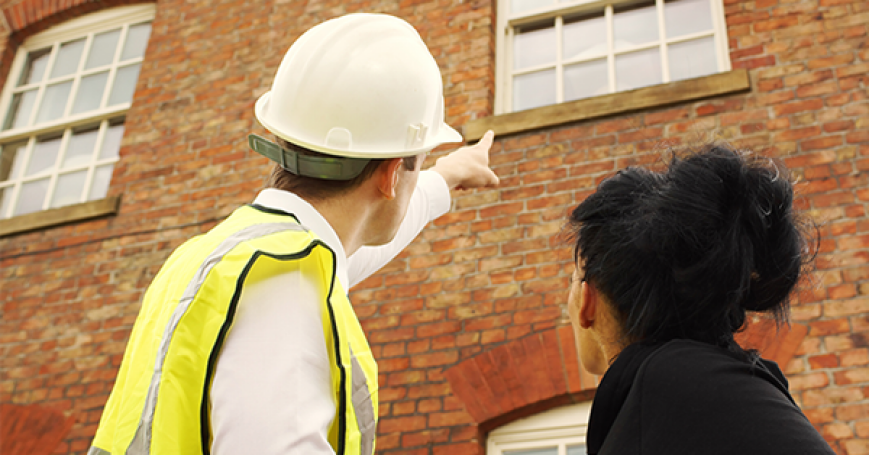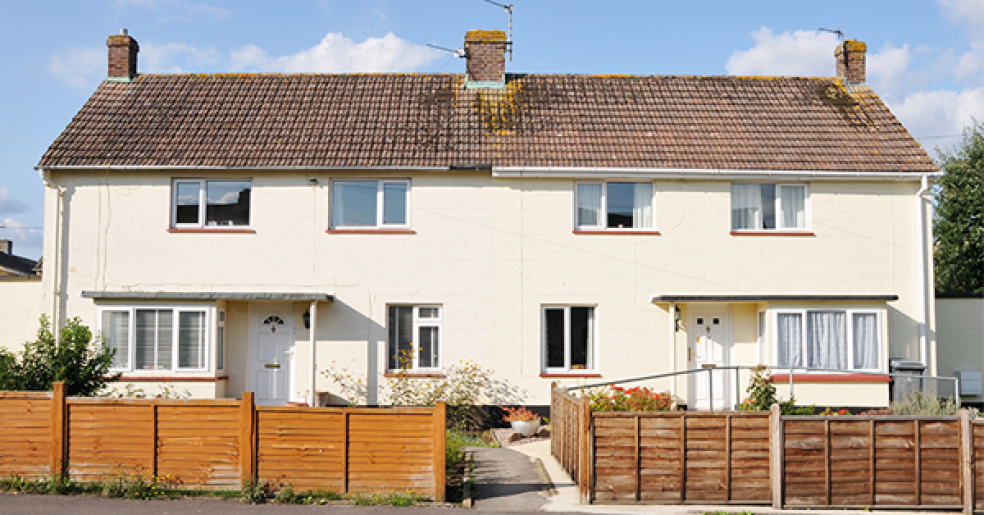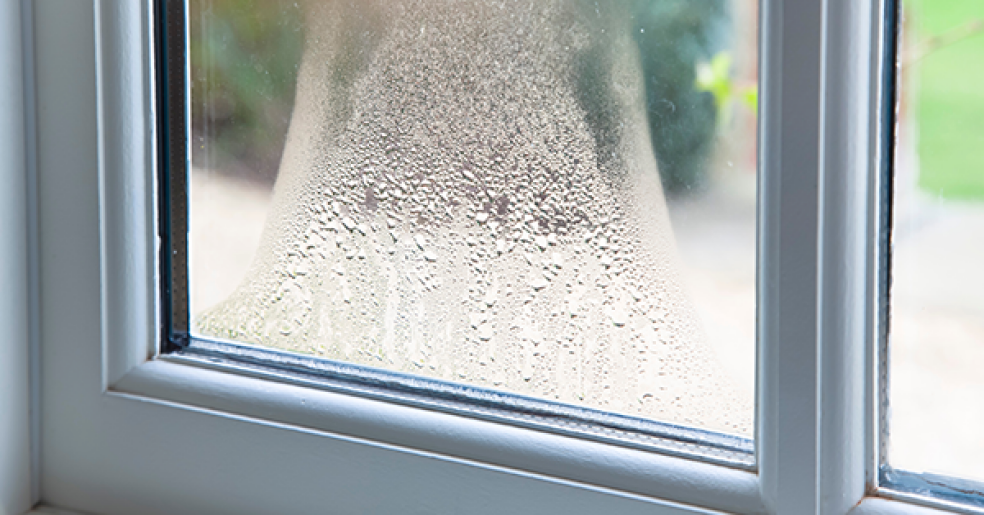Is it Worth Replacing Windows Before Selling a House?
- New windows are a great way to increase the energy efficiency and kerb appeal of your home, helping the attractiveness for buyers.
- Top Tip: Get quotes from numerous installers in your area and properly analyse them for your needs. With so many window styles and types out there, make sure you are getting value for money.
- The cost of new windows can range anywhere from £200 to £3,000 per window.
- A failed double-glazing window can be repaired without having to replace the window fully.
Are you unsure if you should replace your windows before selling? This dilemma can leave a seller worried about whether their property can be sold for its highest potential value, how much it’ll cost to replace the windows, and whether it will benefit them in the long run.
It’s always worth viewing your home from an outside perspective; putting yourself into your prospective buyer’s shoes can help you come to the correct decision on your window replacement predicament.
A change in condition can be challenging to notice, especially if you have lived somewhere for a long time. It’s easy to get used to seeing a chip in a wall, so the same applies to your windows too.
Whether draughts are being let in due to blown double glazing, the entire window frame might need repair, or you simply think you need to upgrade, then it can benefit your property’s kerb appeal and even energy efficiency.
How much value do new windows add to a home?
Buying a property that does not need much improvement is a massive incentive for prospective buyers. Without the need to upgrade or replace the windows, it comes at a cost to the seller in the short term but in the long term, both the buyer and seller will win.
A major benefit is the increased energy efficiency. A lot of heat can be lost through windows, and if you have a low level of glazing, you’ll lose more heat from your home.
However, windows with triple glazing or even just double glazing means that heat loss is drastically reduced. Couple that with some quality blinds or curtains and that reduction is taken even further.
Increased kerb appeal
Kerb appeal is also a big factor in valuing a home, and the look of a property’s exterior is vital. The difference between viewing or an offer and passing on a purchase could come down to the look of your windows.
If there is anything you can do to restore them, from even as little as a good clean or a full replacement, it’ll greatly increase the odds of a sale.
The benefits of replacing old windows
- Potentially raise the value of the property (energy efficiency, kerb appeal).
- Improved home security.
- Soundproofing/noise reduction.
- Low maintenance after installation.

Get in touch with our team if you’re unsure whether you need to replace your windows or not, we can accurately advise you on what you should do and put you in contact with qualified surveyors.
RICS Surveyors | Fixed Fees | Same week availability | Access arranged
How much do new windows cost?
Cost is always a worry when it comes to replacing windows, specifically if you are doing so intending to sell the property. A return on investment is crucial, so it’s a back-and-forth consideration for any homeowner.
As a very rough estimate, the average cost per window can be anywhere between £200 to £3,000, but this is dependent on what type of window you elect to install.
The various factors involved in the pricing of windows are based on:
- The frame material.
- Labour/installation costs (whether you’ll need scaffolding, or if you live in a particularly expensive area).
- Type or style of window.
- If you’re cutting in a new window or replacing an old one.
- The size of the new window.
- Type of glazing.
Which is the cheapest style of window?
There are four main window styles:
- Casement - price range between £160 - £825.
- Sash – price range between £240 - £1,250.
- Tilt and turn – price range between £200 - £1,050.
- Bay – price range between £1,200 - £1,800.
Casement glass windows are the ones most found in homes, usually because of their versatility. They are offered in different sizes, materials, and finishes to match almost any function.
Sash windows are generally seen in Victorian or Georgian homes and can add a unique look to the property. They comprise two window units that open either horizontally or vertically and are usually installed with timber frames.
Tilt and turn windows are more contemporary, opening inwards into the room which ensures better ventilation and lower maintenance. The tilting feature gives you flexibility in how widely they can be opened.
Bay windows protrude out from the wall of a home and establish a bay area inside the room. This style of window can be found anywhere and in all kinds of homes.
Note that these costs are based on averages and are used as an indication.

There are also three main types of window frames which can affect the price:
- uPVC – generally considered to be the lowest cost option available, but not necessarily the lesser. They are easy to maintain, and high-quality uPVC frames can be long-lasting, but poor-quality frames can warp so the cheaper models might not be the best choice.
- Aluminium – these are more expensive but help with durable, long-lasting, and aesthetically pleasing windows. They also offer more thermal efficiency than uPVC and slimmer frames.
- Timber – the costliest option, but it could add some real value to your home if looks are the most important factor for you. They do require more ongoing maintenance than the other options, but the frames can last a lifetime.
It’s best to consult several installers to assess costs and to ensure you’re getting the best value for your money. Make sure to compare and examine all quotes carefully, e.g. if you are replacing any wooden window frames, is there a painting and decorating cost included in the quote?
What to expect when replacing windows
Advances in technology could mean that even if you’ve already had double-glazed windows installed in the past decade or so, new windows could make a big difference.
With a vast number of styles, materials, and colours to choose from, it can get overwhelming and that’s even without factoring in the costs. However, all of these can affect how you utilise your home space and how comfortable the environment is.
Should I replace all windows at once?
It isn’t imperative to replace them all in one go. If you're asking yourself 'is it worth replacing windows before selling a house?', note it could take years to see a return on investment and register an improvement in the energy bills.
It’s no surprise that people tend to replace their windows in stages rather than all together. For example, you might want to do downstairs first and then move upstairs to avoid the disruption and spread the cost.
However, if you are looking to sell, a cost-benefit analysis is required here. If the benefits outweigh your costs, it’s likely to be beneficial for everyone involved to do the wholesale replacements.
It’s recommended that you get quotes from FENSA-certified members, which is a government-approved scheme that looks after building regulations for replacement windows and doors.
A FENSA-approved member is frequently evaluated to make sure that their installations comply with the latest building regulations. Once the job is done, you’ll be issued with a FENSA certificate which is a key document if you’re to sell your home, so ensure you ask for one when the job is done.

The installation process
From quote through to installation, here are the basic steps to take to replace your windows:
- Find a window installer near you – identify the costs involved and get quotes from more than one installer.
- Home visit – each installer that has quoted you should then visit your home, review the conditions, and then discuss your options. Here is where you will consider styles, materials, and colours and confirm that they will provide a FENSA certificate on completion.
- Review formal quotes – you will be given official quotes to review, and you will then decide on which installer to work with. After proceeding, you may be asked to pay a deposit for the installer to order the necessary materials and book the time to work.
- Confirm installation dates – you and your installer will agree on the dates they can install the new windows, and how long it’s likely to take. Constant communication on both sides is paramount here.
- Final payment and obtaining the FENSA certificate – when the work is complete and you’re satisfied, you can make payment and receive the FENSA certificate.
How long does it take to install windows?
This depends on the job size, how big the house is, and the number of windows to be removed and replaced. A basic installation can take around an hour for one window, and for a day’s work, you can expect around 4 windows minimum to be replaced with new ones. Wooden windows requiring paint will take longer.
Do I need a FENSA certificate to sell my house?
You don’t need to have one, but it can make matters a lot easier to have the certificate handy for any windows you replace. It demonstrates that they are compliant with building regulations which is what any prospective buyer would want to see.
If you’ve lost your copy of the certificate, you can check the FENSA website and enter your postcode for another copy. This will cost around £25.
Alternatively, if you’ve had the new windows installed by a fitter who isn’t part of a registered competent person scheme, you can have the windows signed off by your local authority building control department.
These fees will set you back between £150 and £350, or if you’re in the sale process already, you can ask your solicitor to investigate indemnity insurance. If you contact the council, though, you must wait for the inspection to be complete and get the report before completing the sale.

Can blown double-glazing be repaired?
A broken double-glazed unit is not the end of the world and a lot of issues with a double-glazing unit can be repaired. Early detection is key here and can potentially save you a lot of time and money.
Double glazing is assembled with two panes of glass merged with a thermally efficient spacer bar in between which forms the gap. This insulating barrier is intended to keep heat in and cold out, but when this seal is broken, the window is now a blown window.
Here are some signs that you might have a blown double-glazing unit:
- Condensation between window panes.
- An increase in heating bills.
- Outdoor noise penetrates your home.
Get in touch with our team if you’ve got blown double-glazing, we can accurately advise you on what you should do and put you in contact with qualified surveyors.
RICS Surveyors | Fixed Fees | Same week availability | Access arranged
Do blown double-glazed windows lose heat?
A blown window is where the seal between the two panes of a double-glazed window fails, so moisture seeps in and condenses on the cold surface of the glass.
The compromised insulation allows heat to easily escape, causing an increase in your energy costs because your heating system is working overtime. It also lets sound waves pass through which raises the noise levels in your home.
Over time, the moisture from blown windows can lead to further damage, draughts, leakages, and damage to window frames or even walls.
It’s advisable to get a professional to assess the blown window and provide an evaluation. An expert will oversee an inspection and identify any signs of damage from blown windows, pinpointing the cause.
It is feasible to mend a misted or blown double-glazed window without replacing the whole window. Restoring the seal is an option, but this does not resolve the existing condensation inside the window pane.
Changing the glass unit is another option and the ideal option for a longer-lasting solution. Most installers will offer a guarantee on the complete replacement of the glass unit for reassurance.
You can expect to pay somewhere between £50 and £200 to fix a blown window, conditional again on the type, material, location of the property, and the size of the window.
Jack is our resident Content Writer with a wealth of experience in Marketing, Content, and Film. If you need anything written or proof-read at a rapid speed and high quality, he's your guy.
Caragh is an excellent writer and copy editor of books, news articles and editorials. She has written extensively for SAM for a variety of conveyancing, survey, property law and mortgage-related articles.









